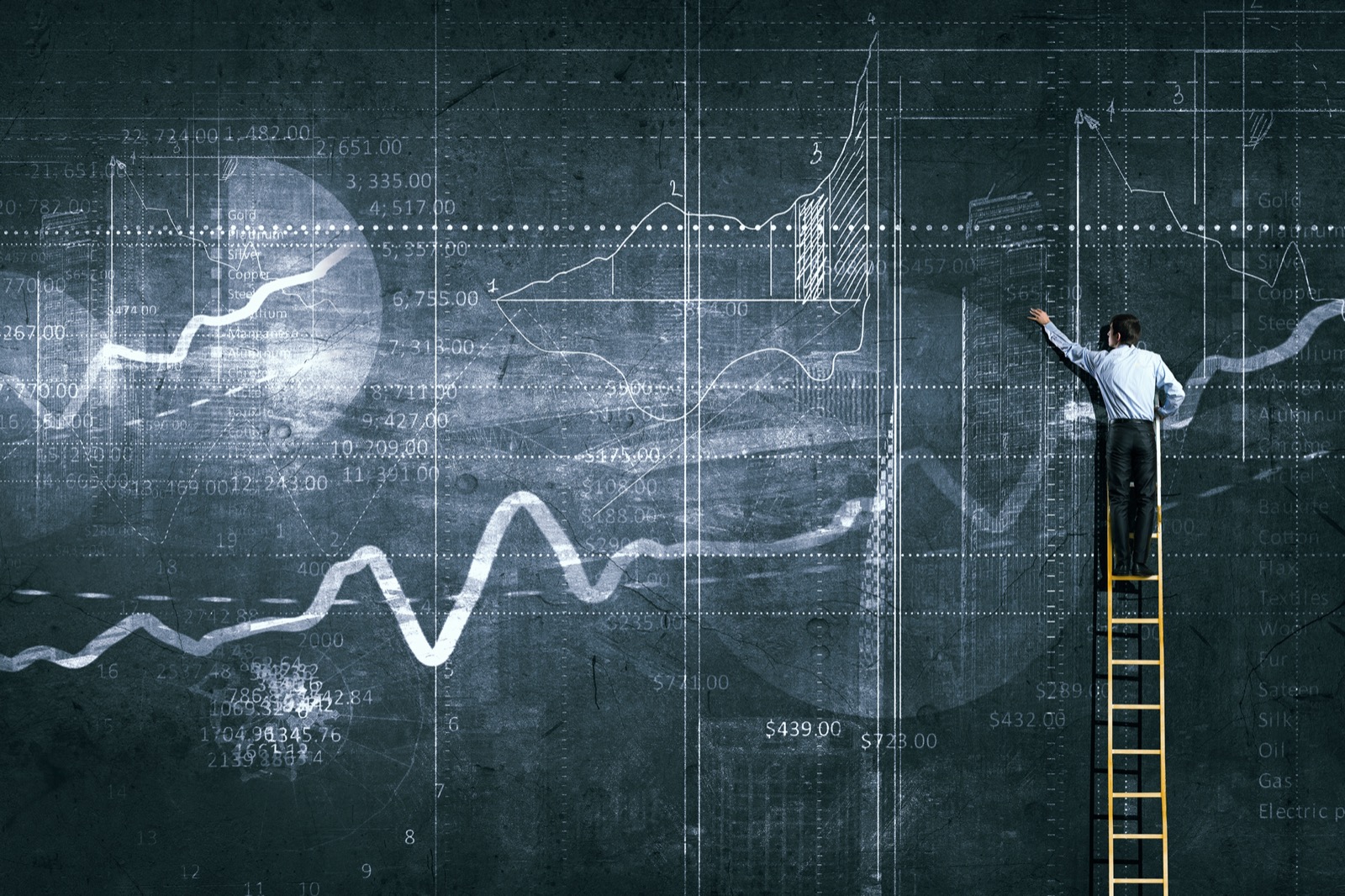One of the most powerful pieces of literature illustrating the proper preparation for a financial crisis comes from antiquity. More precisely, from the Bible.
Genesis, chapter 41, tells of a dream of the pharaoh of Egypt. In his dream, Pharaoh was standing near the Nile river when “suddenly there came up out of the river seven cows, fine looking and fat; and they fed in the meadow. Then behold, seven other cows came up after them out of the river, ugly and gaunt”. Contrary to all expectations, the skinny cows, instead of going to graze, swallowed the fine-looking fat cows. The Bible goes on to tell us of a second dream that Pharaoh had, very similar to the first one. Seven thin heads of grain, blighted by the east wind, swallowed another seven plump heads of grain.
The well-known biblical character, Joseph, one of the sons of Jacob the Patriarch, was at that time in Pharaoh’s prison. He was the only one who could explain the dreams. Both the seven beautiful and fat cows and the seven rich heads of grain represented seven years of abundance, Joseph told the pharaoh. The seven ugly and gaunt cows and the seven thin heads of grain represented another seven years, characterised by famine and all its consequences.
In response to this prophecy, Pharaoh demanded the implementation of immediate measures to efficiently secure savings and manage the country’s production. Following Joseph’s counsel, it was decided that the nation would set aside, during the seven prosperous years, 20% of the country’s annual production, to ensure the necessary food during the seven years of famine to come. Due to these measures, during the seven years of terrible famine, when all the neighbouring countries were in great crisis, Egypt had plenty of food, affording even the luxury of selling their precious grain to other countries.
This biblical story could not be a better fit for the present time.
What would we have done, had we been warned?
After the epidemiological crisis triggered by the new coronavirus, we will probably face an economic crisis whose proportions we cannot yet anticipate because we do not really know how the pandemic will evolve. We are hoping for the best scenario, but it would not be wrong to prepare for the worst.
Wouldn’t it have been helpful if one of the leaders of the countries with the strongest economies in the world had received a dream foretelling the appearance of this microscopic enemy and its consequences, similar to Pharaoh’s? Maybe we would now have sufficient supplies of medical masks and disinfectants, and we would have isolated the areas where the virus appeared from the beginning. Maybe we would have dealt much more seriously with the problem at its start and as a result wouldn’t have had as many victims as we do.
Beyond the topic of macro strategies, I have a few other questions in mind: What would we have done individually had we known a few years ago that at the beginning of 2020 we would be dealing with such a crisis? Would we have behaved differently? Would we have been more attentive to our consumption habits? Would we have been able to save more to deal with the uncertain times we are experiencing now?
Weren’t we warned?
We already know there is a general economical cyclicity: after periods of collective welfare and apparent tranquillity, critical times come and rearrange the pieces on the economical chessboard.
Although there are many things to be dissatisfied about in our countries, we cannot deny that since the last economic crisis, progress had been made and we had all benefited, individually.
Obviously, there is always room to improve, both from the point of view of the incomes of each professional or social category (retirees, unemployed or socially-assisted people), as well as from the productivity point of view. However, we cannot deny that most of us have experienced an increase in purchasing power compared to previous years. We already know there is a general economical cyclicity: after periods of collective welfare and apparent tranquillity, critical times come and rearrange the pieces on the economical chessboard.
How did we prepare?
We are now facing another totally unexpected crisis that has suddenly settled in the lives of every one of us. We cannot yet fully assess the damage, neither at the level of the loss of life, nor at the economic level. At present, all eyes are on the research laboratories that are working on providing the miraculous vaccine against the new coronavirus, and on the governments, from which rescue solutions are expected to come through economic aid.
The economic aid policies under elaboration are obviously useful and necessary. We need to take care of the most vulnerable in this time. It is obvious that one of the most important roles the state has during an emergency is to protect its own citizens.
However, it is not inappropriate at this time to analyse our own behavioural patterns and management of finances in the past years, and then to evaluate the ways in which we have prepared ourselves for economically difficult times such as the one we are now passing through.
Certainly, we could not have anticipated precisely the type of crisis we are going through, but we had reasonable historical and statistical reasons to expect that economically difficult times would come. As we have already pointed out, in essence, the economy is cyclical, and after periods of continuous economic growth, periods of economic decline inevitably also come.

The saving front
An ING International Survey from 2019 analysed 15 countries, with a total number of 14,700 respondents (on average about 1,000 respondents from each country). It was discovered that on the European continent, on average 27% of families have failed to secure their own savings, a percentage equal to the average found in the United States (27%). Australia is in a slightly better situation (22% of families have no savings for black days). As for the various countries in Europe, the situation is as follows: Luxembourgers have it best—only 13% of them do not save, the Turks (17%) and the Dutch (20%).
In the introduction to the study, the authors explain that the main disadvantages of those who do not save are: 1) they have less control over their own lives (both present and future); 2) the decisions they make are generally constrained by the economic factor; 3) they are significantly less able to seize opportunities that arise during their life; and 4) they have fewer options regarding the choice of a place to live, the type of medical care they need during their life, and fewer options regarding the education their children can receive.
The recommendation of the specialists is to set aside somewhere between 3 and 6 net salaries, which will allow one to successfully get through a more difficult time such as the one we are currently experiencing.
If we were to choose the model implemented by the ancient pharaoh, to save 20% of earnings, the 6 reserve salaries could be collected in 30 months (2 and a half years).
What will you do if you run out of money?
To this question from the ING study, about 74% of Europeans answered that they are willing to reduce expenses. Resorting to loans from friends was only an option for 20% of Europeans.
The main reason given for the lack of savings is not earning enough: 66% of Europeans who have no savings invoke this reason. But 14% of Europeans without savings say that they did try to save but some unexpected expenses came up and ate away at their earnings.
With or without prophetic dreams, we were warned. What will we do for the future?
Each crisis can be a teacher that teaches us an important lesson for the future. We can only hope that the current pandemic will end as soon as possible, and that its economic consequences will be minimised.
Let us keep in mind the image of the pharaoh who, several millennia ago, decided to save 20% of the country’s production in prosperous years, in order to be safe during a time of famine.
I would like to hear fewer slogans such as “Let’s just hope for the best” or “Come what may”. Let’s educate ourselves to be increasingly responsible with the individual resources we manage, both those that are quantified in money, services, and opportunities, as well as those more difficult to quantify, such as time, health, and physical, mental, emotional and spiritual resources. Once again, we have come to realise that the comfortable life we enjoy can disappear very quickly. Now is the time to manage the risk calmly and wisely. Under no circumstances should we ignore it.
Bogdan Bălașa is a Real Estate Business Development Manager.



















